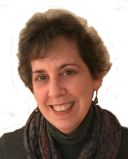Grief
The Expert Way to Manage Anxiety
Delegating responsibility and letting go of grief.
Posted July 5, 2018

Before Lydia-the-wonderful-therapist retires, she suggests that I see someone who specializes in mindfulness and beef up my skills on managing daily-life stress. That makes sense: I have been working with her for a long time on lifelong challenges (chronic illness, childhood experiences that negatively affected my sense of self, recurrent stressors in key relationships), and it seems right to shift the focus to more quotidian and behavioral work for a while. Plus, honing mindfulness skills will certainly make me a better therapist—most of us need to strengthen our abilities to live in the moment, identify and accept feelings, thoughts and physical experiences, and be aware of life as a constantly changing experience.
I decide to call Michael, a therapist I have known casually for a long time. Living in a small community, our paths cross repeatedly. I ask if he’ll take me as a client for a while, and do some work involving anxiety management and mindfulness. I identify some minor stressors—time and financial management, health, and a changing sense of purpose in my life. I suspect he knows there’s a subtext here.
As I relax into working with him, I reveal more of the anxiety, particularly an intense awareness of Death-with-a-capital-D, as my elderly mother and several older friends experience notable decline; my mother dies; I relive prior losses and grieve her by working intensively on a book I’m writing about transformation in grief. One day in therapy, after making a comparison between the way I feel working with a trenchant, recently widowed client versus the way I feel working with a young client exploring her gender orientation, Michael said in his clear, direct way, “Maybe you’re done with grief work.” I stare at him. I’m a therapist who specializes in grief, I think. It’s my area of expertise!
At the same time, another part of my brain—and my heart—relax. I could be done with grief, I think. My whole body softens. I start to cry.
Michael and I talk about the possibility. He has named something I hadn’t dared consider because I am afraid my identity would crumble: I see myself as a grief expert, but I don’t like the way my life is oriented almost exclusively toward loss, death, and grief. I really relish working with people as they wrestle with career, relationship, family, purpose, identity, self-esteem. The issues I have worked so hard to understand in my own life with wonderful help from different therapists through the years.

“But I’m writing this book about grief,” I say to Michael. He gives me his “waiting” look: soft blue eyes kind and patient, mouth turned slightly up in warm expectation. I think out loud: “I don’t want to stop working on that. I love it, the creativity, thinking, writing. I love Agent Carolyn, who is guiding me through the process of shaping a book proposal in order to get it published, something I’ve always wanted but never knew how to do.”
I stop for a moment. “It’s really great to have someone whose job is to represent my work, an expert in doing something I want but that feels overwhelming to me.”

Michael smiles. “Reminds me of the financial advisor,” he says and I pause to make the connection. He’s talking about Jon, to whom I have relinquished years of anxiety, shame, and fear about money I don’t know how to manage. I have had money languishing in low-interest retirement accounts and have finally hired someone who knows what to do with them. Jon tells me, when I express embarrassment about my sins of ignorance, discouragement, and ineptitude (as I do compulsively whenever I see him), “Elizabeth, this is my job. This is what I trained to do.” The relief I feel every time I hear him say that is curiously similar to the relief at the thought of being done with grief.
Michael watches my face as I fly through the thoughts about Jon. He smiles again as I pick up the thread he has revealed in my self-narrative. “I’ve been getting a lot of experts lately.”
He raises his eyebrows, encouraging me to continue. “There’s Agent Carolyn. Financial Advisor Jon. There’s Handyman Adam, who not only fixes things that need fixing, but also put in a garden and painted the house. He mows the lawn, sands the driveway, and looks after me. I don’t have to worry about my house anymore.” This is a tremendous relief: the house is big and old, a duplex with both a rental unit and my therapy office, and I barely know how to change a light bulb.
I go on. “There’s Kelly, who has taught me how to use my insulin pump and continuous glucose monitor and made it possible for me to get my blood sugar the best it’s been in 45 years.” Michael is grinning now. “There’s Dr. Massie, who has figured out how to get my heart rate down so I am not falling asleep from exhaustion in the midst of a session with a client.” Michael nods, remembering the self-recrimination I had when that happened. “There’s Brent, the minister who expresses my spiritual beliefs in sermons with just the right balance of encouragement and challenge.”

I pause, and Michael meets my eyes. “How do you feel about your experts?”
The answer is immediate. The tears come again, and with them the simple truth: “I feel safe.”
Michael nods, and I go on. “I feel safe, protected, not alone.” And suddenly I am really crying, the wracking sobs of childhood fear and loss, the burden of too much responsibility too soon, a child expected to manage things she didn’t understand: the old double-whammy of diabetes and scoliosis.
I look at Michael. The session, and our work together, is ending. “Maybe I am done with grief,” I say, and we both know what I mean.




